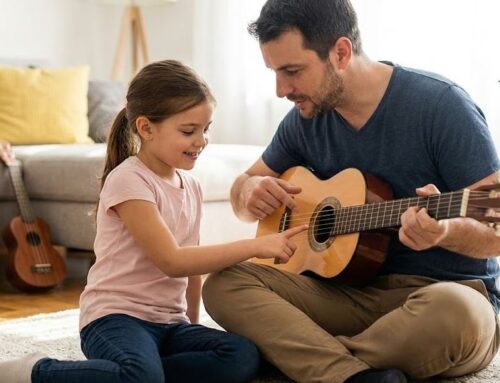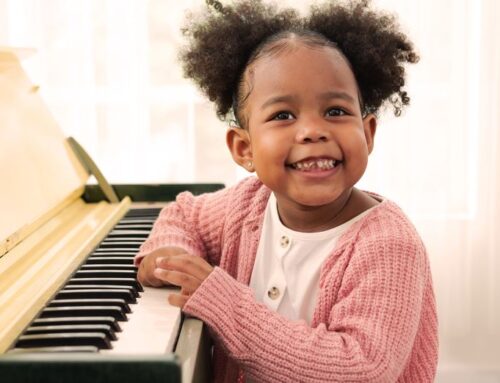The spotlight is warm, the audience quiet, and your child grips their instrument with clammy hands. Despite weeks of practice, they suddenly freeze.
Stage fright is a common rite of passage for young musicians—but it’s not just nerves. It’s a complex psychological and physiological experience that can affect even the most talented performers. The good news? It can be understood, managed, and even transformed into a source of strength.
At Capstone Music, our instructors don’t just teach songs—we help students develop real performance confidence. Explore our supportive music lessons and programs designed to nurture skill and stage presence.
What Is Stage Fright, Really?
Also known as performance anxiety, stage fright is the body’s natural “fight or flight” response to perceived pressure. For a child, this might be:
-
Playing in front of an audience
-
Being evaluated during a recital or exam
-
Worrying about forgetting notes or making a mistake
Symptoms often include:
-
Sweaty palms or racing heart
-
Shallow breathing
-
Shaking hands
-
Negative self-talk (“What if I mess up?”)
Even seasoned adult performers experience this. But for children still building emotional regulation and self-esteem, it can feel overwhelming.
Why It Happens: The Brain’s Alarm System
Stage fright isn’t just emotional—it’s biological. The amygdala, the brain’s threat detector, sees the audience as a form of danger. This triggers adrenaline, increases heart rate, and sends blood to the limbs in preparation for “escape.”
The trouble is, music performance requires calm, fine motor control, and focus—exactly what the body deprioritizes under stress.
What Kids Actually Fear
In most cases, children aren’t afraid of performing—they’re afraid of:
-
Judgment (“Will I embarrass myself?”)
-
Letting others down (teachers, parents, peers)
-
Losing control of their emotions or memory
Recognizing the underlying fear helps guide how we support them and supports mental health.
5 Ways to Help Kids Manage Stage Fright
-
Normalize It
Let them know it’s totally normal—even famous performers feel it. This de-shames the experience. -
Rehearse Performance, Not Just Music
Practice in front of small audiences (family, friends), simulate recital environments, and talk through the “before and after” logistics. Performance is a skill separate from playing. -
Use Breathwork and Visualization
Simple breathing exercises and visualization (imagining a calm, successful performance) help rewire the nervous system’s response. -
Reframe Mistakes
Instead of “Don’t mess up,” encourage “Keep going no matter what.” Teach kids that mistakes are part of performing, not signs of failure. -
Create Safe Opportunities to Perform
At Capstone Music, students regularly perform in casual showcases before doing formal recitals. This builds confidence in stages—literally.
Parents Play a Key Role
Children often look to parents for cues about how to feel. A parent who’s overly nervous, overly perfectionistic, or dismissive of anxiety can unintentionally reinforce fear.
Instead:
-
Celebrate effort, not just outcome
-
Stay calm and encouraging
-
Let the experience belong to the child—not the parent’s expectations
When Stage Fright Is More Serious
For some children, performance anxiety can signal broader anxiety patterns. If a child consistently avoids performances, breaks down emotionally, or becomes physically ill with nerves, it may be worth consulting a child therapist or counselor.
Music should empower, not paralyze. The right combination of musical coaching, emotional support, and gradual exposure can make all the difference.
Performing With Confidence Is a Learnable Skill
Stage fright doesn’t have to steal the spotlight. With empathy, practice, and the right environment, young musicians can learn not just how to perform—but how to shine. The right time to get over your stage fright is now!



